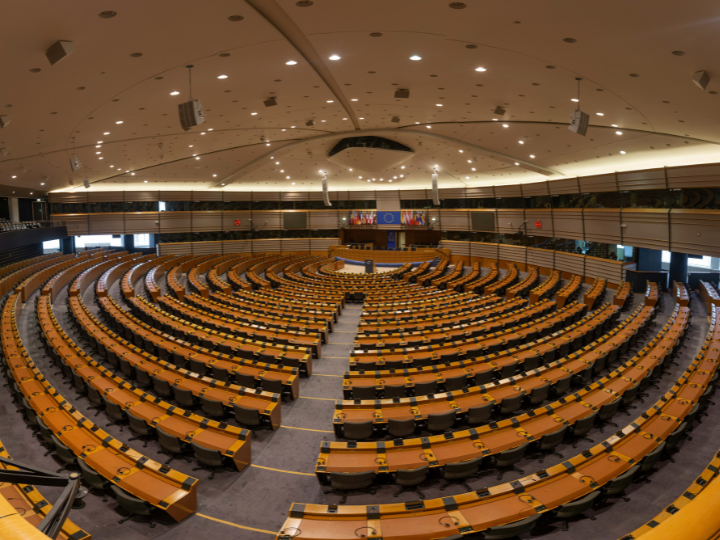EU leaders cannot exploit populism when it suits them and then complain when things do not go their way. We need strong leadership from the political mainstream to turn things around, write Petroula Nteledimou and Nikos Lampropoulos

The question is not about hope for the European Union, but for the survival of democratic institutions. Anyway, “hope” is one more notion corroded by its political abuse during the last years of the crisis. One thing is for sure: strong political will and leadership is required. This is not a poker game. One cannot exploit populism à la carte. An integral strategy is needed. Otherwise, the political elite – politicians of a generation who has never lived outside the EU and inside the menace of populist predominance – will very soon find themselves trapped in their own trick. And what is at stake is much more than their petty political survival.
by
Nikos Lampropoulos, Petroula Nteledimou*
Populism has preoccupied European political debates for a couple of decades. It was the time of the European dream, the time of integration perspectives, the time of the Lisbon Strategy, the time of Common Foreign and Security Policy, the time of celebration of a common currency, of a historic – and big – enlargement.
At that time, the European political debate seemed like a competition, who is more federalist. Centre-right federalism, with more deregulation on markets supposedly contributing to further European integration, competed with centre-left federalism, which presumed that a stronger social state is more beneficial to a Federal Europe. Eurosceptics were small minorities, often coinciding with the two extremes of the political spectrum.
But then the crisis hit. For a while, the political elites in Europe realised neither its depth nor its breadth. They continued their “business as usual” approach, only sporadically confronting populist talk, racist or hate speech, Eurosceptic rhetoric. They assumed it would be possible to overcome one more crisis without changing anything. But the extremes showed very fast reflexes: they quickly took advantage of the situation, of the people’s discontent – which soon turned to misery – of the social turmoil and the increasing gap between the rich and the poor, the North and the South, of unstoppable migration flows. And they developed a new political trend, described more or less as “the end of political correctness”. The extreme right has been rising very fast all around Europe. Populist parties have taken over in many countries.
European centre-right and centre-left parties, pro-Europe politicians, think tanks, political actors working for decades with a vision of an integrated Europe, lost momentum. Now they are suffering the consequences.
Historically moderate parties like the UK Labour Party, and the French right adopted populist talk in order to survive. They chose to partly embrace populism – encouraging Alexis Tsipras or Jeremy Corbyn – and to respond harshly to others, according to a fragmented, ill-developed notion of “political interest”. A characteristic example: the same people, the same politicians who have been trying to affiliate with Tsipras and SYRIZA, are now regretting Beppe Grillo’s efforts to join a mainstream pro-European party.
Of course, when the problem enters your backyard, threatening your own political survival, it seems different. This was the case also with Brexit. The same people advocating that Greece leave the eurozone in order to “save itself”, were the ones crying over the spilled milk when UK citizens voted out in the referendum.
Now the damage is done. It is not necessarily irreversible but it is severe. Populism has become a major trend. The European Union itself has been called into question. It is seen as “normal” that fascists and extreme leftists have strong representation – even participate in governments – in almost all European countries. Fear and anger is growing among citizens, and the European institutions cannot afford to remain distant anymore.
The question is not about hope for the European Union, but for the survival of democratic institutions. Anyway, “hope” is one more notion corroded by its political abuse during the last years of the crisis. One thing is for sure: strong political will and leadership is required. This is not a poker game. One cannot exploit populism à la carte. An integral strategy is needed. Otherwise, the political elite – politicians of a generation who has never lived outside the EU and inside the menace of populist predominance – will very soon find themselves trapped in their own trick. And what is at stake is much more than their petty political survival.
*Petroula Nteledimou is vice-president of UEF Greece and Nikos Lampropoulos is director of EurActiv Greece.


